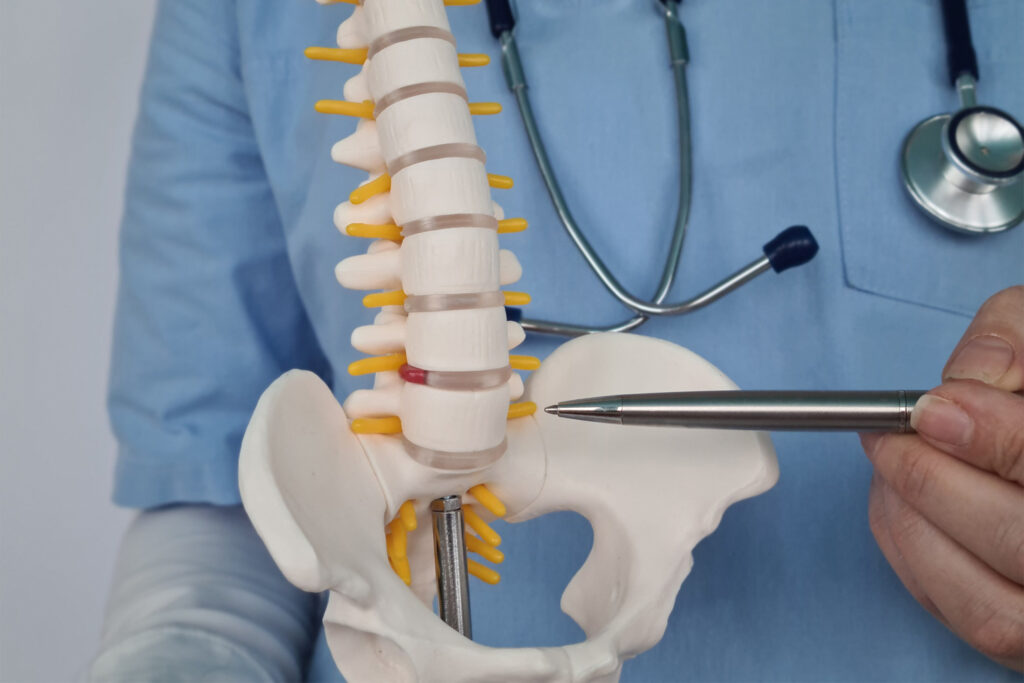Degenerative disc disease is a cause of back and neck pain in adults. It develops as the intervertebral discs in the spine lose hydration and elasticity over time, impacting mobility and comfort. Early diagnosis offers valuable opportunities for symptom management and functional preservation. Understanding the condition, its origins, symptoms, and treatment options helps improve outcomes and quality of life.
What Is Degenerative Disc Disease?
Degenerative disc disease refers to the gradual breakdown of spinal discs, which serve as cushions between the vertebrae. These discs can deteriorate due to a combination of aging, mechanical stress, and biochemical changes within the disc material. Loss of disc height and flexibility leads to spinal instability or nerve compression, contributing to persistent pain. The condition can affect any part of the spine, but is most commonly found in the lumbar (lower back) or cervical (neck) regions.
What Causes It?
The main driver of this disease is the natural aging process. Over time, the discs lose their water content and become less resilient, increasing susceptibility to tears, cracks, or bulges. Factors such as genetics, repetitive strain, poor posture, and tobacco use may also contribute. Physical activity involving heavy lifting, sports injuries, or obesity can accelerate disc degeneration.
What Are the Symptoms?
Symptoms vary by location and severity. Individuals may experience chronic, localized pain in the affected spine area. For lumbar disc issues, pain can radiate to the hips or legs (sciatica). Cervical involvement may lead to pain radiating into the shoulders or arms.
Other symptoms can include stiffness, numbness, tingling, or muscle weakness due to nerve involvement. Pain intensity often fluctuates, exacerbating during certain movements or prolonged periods of sitting or standing. Consulting a specialist helps with diagnosis and treatment.
How Is Early Diagnosis Beneficial?
Early identification of degenerative disc disease enables prompt intervention to slow progression and minimize complications. Diagnostic imaging allows clinicians to assess disc integrity and stage degeneration. This may include MRI or CT scans.
Identifying the condition in its initial stages can lead to more conservative treatment approaches and improved symptom control. Timely diagnosis also assists in ruling out other causes of back or neck pain, which may require different management. Initiating early treatments can reduce the likelihood of chronic pain cycles, disability, or the need for invasive procedures.
What Are the Available Treatment Options?
Managing this disease may involve a combination of non-surgical and surgical approaches. Conservative treatments focus on symptom relief, functional restoration, and preventing further degeneration.
- Low-impact exercise and stretching: Activities such as walking, gentle yoga, and regular stretching help maintain mobility and core strength.
- Physical therapy and posture training: Standard interventions can improve spinal alignment and decrease pressure on affected discs.
- Ice or heat packs: These modalities may alleviate acute pain and muscle spasms.
- Medications: Medications are often utilized for symptom management and pain control.
- Interventional procedures: Epidural injections, facet blocks, or radiofrequency ablations may target specific pain sources and offer longer-term relief.
Surgical intervention may be evaluated for cases where conservative treatment fails or when neurological impairment develops. Surgery aims to stabilize the spine or decompress affected nerves, alleviating persistent or severe symptoms.
Seek an Early Diagnosis Today
Degenerative disc disease is a condition among adults that impacts daily function and comfort. An early diagnosis supports timely intervention, limiting progression and reducing complications associated with advanced degeneration. If you notice persistent back or neck pain, consult a healthcare professional for assessment and appropriate management. Early action can help maintain mobility and preserve quality of life.
- mylovelyfurryfriend discover expert tips on dog health
- Infectious Diseases Updates – Stay Informed, Stay Protected!
- Wegovy For Weight Loss – A Breakthrough in Managing Obesity!
- Emergency Medicine Forum – A Hub for Fast-Paced Knowledge, Support & Updates!
- Pediatrics Discussions – Insights, Challenges, and Expert Advice for Better Child Health!





Leave a Reply